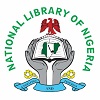The Central Bank of Nigeria (CBN) has released three circulars on foreign exchange (FX) to address the country's currency depreciation. Despite the fire-fighting measures, the official naira exchange rate to the dollar closed at N1,537.96/$, while at the parallel FX market it closed at an all-time low of N1650 to a dollar last Friday. Liquidity remains a major challenge in the FX market, and the forces of demand and supply will naturally play out.
Inflationary pressure has worsened the increasing tension and depreciation of the naira, as the consumer price index (CPI) climbed to a 28-year high of 29.9% in January. The food inflation rate increased by 11.10% year-on-year to 35.41 percent, compared to 24.32 percent in January 2023. The country's high import dependence explains why the exchange rate is often the bellwether for Nigeria's economic health, and why there is a swift pass-through of exchange rate movements to inflation, contributing to the economic hardship in the land. The CBN Governor, Mr. Olayemi Cardoso, and his colleagues at the apex bank are calling for banks to take responsibility and seek ways to address the supply gap in the market. They have lifted restrictions placed on access to FX for 43 items previously prohibited from accessing FX from the official market, cleared the country's FX liabilities across various sectors, directed banks to limit the Net Open Position (NOP) of their overall foreign currency assets, and removed the allowable limit of exchange rate quoted by the International Money Transfer Operators (IMTOs).
 Index to Nigerian Newspapers
Index to Nigerian Newspapers
